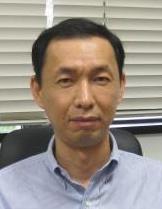Polynomial Fuzzy Control Systems Design and Analysis: Theory and Practice

Kazuo Tanaka
IEEE Fellow, IFSA Fellow
The University of Electro-Communications, Tokyo, Japan
Abstract:
This talk presents a post linear matrix inequality (LMI) framework for fuzzy control theory and practice. The framework employs a sum-of-squares (SOS) based approach for control of nonlinear systems utilizing polynomial fuzzy systems and controllers, which include the well-known Takagi-Sugeno fuzzy systems and controllers as special cases. Today, there exists a large body of literature on LMI-based fuzzy control using Takagi-Sugeno fuzzy systems. A key feature of the LMI-based approaches is that they result in convex feasibility problems that entail efficient numerical solutions by convex optimization methods such as the interior point method. The LMI-based approaches have enjoyed great success and popularity since their inception. On the other hand, there still exist a large number of design problems that either cannot be represented in terms of LMIs, or the results obtained through LMIs are sometimes conservative.
The first part of this talk gives a comprehensive treatment of advances on the SOS-based approach as a post-LMI framework. The presentation focuses on two remarkable viewpoints of the SOS-based approach, namely the non-convex designs and S-procedure relaxations. In the SOS-based approach, the transformation from non-convex design conditions to convex design conditions often results in some challenging issues. Conversely, the use of non-convex design conditions can avoid the transformation problems, but it is difficult to solve non-convex design conditions efficiently. To this end, this talk presents a most recent result on an efficient numerical technique to deal with non-convex design conditions. Furthermore this talk also presents the extensive utility of SOS polynomial design conditions in S-procedure relaxations.
The second part of this talk deals with practical applications to unmanned aerial vehicles (UAVs) flight control that is one of the most challenging control problems due to the fact that these applications feature complicated aerodynamics in addition to unstable dynamics, nonlinearities, and coupling between the positions and attitudes. This talk presents real flight control of a paraglider-type UAV and a flying-wing (delta-wing) type UAV via the LMI and SOS approaches. The dynamics of the former UAV is unique and interesting from a mechanics point of view since it consists of two rigid bodies with a flexible wing (canopy). Flight control of the latter UAV is also a very challenging nonlinear control problem since it is a tailless fixed-wing UAV that has no definite fuselage due to enhancing their flight efficiency excessively. Thus, since the flying-wing type UAV has no horizontal and vertical stabilizers (tails), its control is extremely difficult.
Throughout the talk, it will be reflected upon how to bridge the enabling fuzzy control framework with the SOS-based approach in the development of toolkits for control of nonlinear systems.
Biography:
Professor Kazuo Tanaka is currently a Professor in Department of Mechanical and Intelligent Systems Engineering at the University of Electro-Communications, Tokyo, Japan. He received his Ph.D. in Systems Science from Tokyo Institute of Technology in 1990. He was a Visiting Scientist in Computer Science at University of North Carolina at Chapel Hill in 1992 and 1993.
He received the Best Young Researchers Award from the Japan Society for Fuzzy Theory and Systems in 1990, the Outstanding Papers Award at the 1990 Annual NAFIPS Meeting in Toronto, Canada, in 1990, the Outstanding Papers Award at the Joint Hungarian-Japanese Symposium on Fuzzy Systems and Applications in Budapest, Hungary, in 1991, the Best Young Researchers Award from the Japan Society for Mechanical Engineers in 1994, the Outstanding Book Awards from the Japan Society for Fuzzy Theory and Systems in 1995, 1999 IFAC World Congress Best Poster Paper Prize in 1999, 2000 IEEE Transactions on Fuzzy Systems Outstanding Paper Award in 2000, the Best Paper Selection at 2005 American Control Conference in Portland, USA, in 2005, the SICE Award at RoboCup Japan Open 2010, Osaka, Japan, in 2010, Best in class Autonomy Award at RoboCup 2011 Japan Open in Osaka, Japan, in 2011, the Best Paper Award at 2013 IEEE International Conference on Control System, Computing and Engineering (ICCSCE 2013) in Penang, Malaysia, in 2013, the Best Paper Finalist at 2013 International Conference on Fuzzy Theory and Its Applications (iFUZZY2013) in Taipei, Taiwan, in 2013, the Best Poster Award, The First International Symposium on Swarm Behavior and Bio-Inspired Robotics (SWARM 2015), Kyoto, Japan, in 2015.
He served as Chair of Task Forces on Fuzzy Control Theory and Application, IEEE Computational Intelligence Society Fuzzy Systems Technical Committee. He also served as an Associate Editor for Automatica and for IEEE Transactions on Fuzzy Systems, and is on the IEEE Control Systems Society Conference Editorial Board.
His research interests include fuzzy systems control, nonlinear systems control and their applications to unmanned aerial vehicles. His journal publications currently report over 25,499 citations according to Google Scholar, with h-index of 52 and i10-index of 135. He is an IEEE Fellow and an IFSA Fellow.